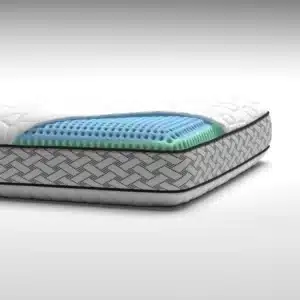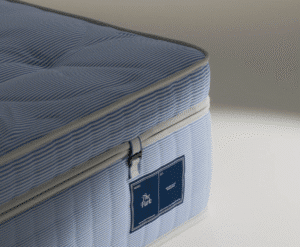Understanding Why Your Eyes Water When You Yawn
Have you ever wondered, “Why do my eyes water when I yawn?” It’s a question many of us find ourselves asking, especially when we notice those unexpected tears forming. Yawning is a natural reflex, but it can trigger a response from our eyes that leaves us puzzled. Let’s explore the science behind this phenomenon and unpack the top three surprising reasons why it happens.
The Mechanics of Yawning and Tear Production
When you yawn, an intricate series of muscle contractions occurs in your face, leading to an increase in tear production. The primary culprits behind watery eyes during a yawn include the contraction of facial muscles and the pressure exerted on your lacrimal glands—those small but vital structures responsible for tear production.
Facial Muscles in Action
Yawning isn’t merely an act of opening your mouth wide; it involves a rhythmic contraction of facial muscles. As you yawn, these muscles tighten around your cheeks and eyes, creating pressure. This tightness acts like wringing out a towel, which in this case, inadvertently squeezes your lacrimal glands.
When these glands are compressed, they begin to release tears. This overflow can create the unmistakable look of watery eyes, even when you’re just yawning. So, the next time someone asks why your eyes water when you yawn, you can confidently explain that it’s a physical reaction linked to muscle contraction!
Common Reasons for Watery Eyes While Yawning
Aside from the biology of yawning, there are several other common factors that can cause your eyes to water during this reflex. Understanding these can help alleviate any discomfort you might experience.
Dry Eye Syndrome
One frequently overlooked reason for watery eyes during yawning is dry eye syndrome. When your eyes lack proper lubrication, they can overcompensate by producing excessive tears. Conditions such as aging, medication side effects, or environmental factors can exacerbate dryness, leading to increased tear production when you yawn.
To manage dry eyes, consider using artificial tears or eye drops. Keeping hydrated and minimizing exposure to dry environments can also make a significant difference.
Allergies and Environmental Irritants
Another factor that can contribute to watery eyes during yawning is exposure to allergens or irritants in your environment. Allergens like dust, pollen, and strong fragrances can trigger an inflammatory response, making your eyes sensitive. When you yawn, the added pressure on your tear glands can prompt an increased tear response to combat these irritants.
If you suspect allergies are at play, consider consulting a healthcare professional for antihistamines or other treatments to reduce symptoms.
Eye Fatigue
Extended periods of concentrating on screens or reading can lead to eye fatigue, which may also cause your eyes to water when you yawn. Eye strain can make your eyes dry; this dryness can trigger the lacrimal glands to produce tears during a yawn.
To ease eye fatigue, practice the 20-20-20 rule: every 20 minutes, take a 20-second break to look at something 20 feet away. Additionally, ensure you are using proper lighting while working on screens to reduce strain.
Additional Effects of Yawning
Yawning comes with a myriad of effects beyond watery eyes. Not only does it help to clear the eustachian tubes—thus relieving ear pressure—but it’s also a contagious act that fosters social bonding. Studies suggest that yawning can create empathy and connection between individuals, reinforcing social bonds.
Furthermore, yawning often involves a stretch of your facial muscles, alleviating tension. However, indicating underlying issues, excessive yawning could be a sign of fatigue or mental strain.
Managing Watery Eyes During Yawning
If watery eyes during yawning bother you, there are several techniques to manage this common issue.
Eye Lubrication
Keeping your eyes properly lubricated can help mitigate excess tear production. Consider the following:
– Artificial Tears: Over-the-counter eye drops can maintain moisture levels. Use as directed to prevent dryness.
– Stay Hydrated: Drink enough water daily to keep your body and eyes hydrated.
– Optimize Your Environment: Use humidifiers in dry spaces, particularly during winter months.
Adjusting Your Yawning Technique
Believe it or not, your yawning technique can influence the extent to which your eyes water. Here are a few tips:
– Relax Your Facial Muscles: Ease up on the tension in your face when yawning to reduce pressure on the lacrimal glands.
– Control Your Yawn: Try yawning with your mouth slightly closed to minimize strain on facial muscles.
Seek Medical Advice
If your watery eyes persist, it may be worth consulting an ophthalmologist to identify any underlying conditions such as dry eye syndrome or allergies. They can recommend personalized treatments tailored to your specific needs.
Conclusion
In conclusion, understanding why your eyes water when you yawn uncovers a fascinating interplay of muscular contraction and glandular response. While this phenomenon is common and usually harmless, knowing how to manage it can improve your comfort. By ensuring your eyes are adequately lubricated, adjusting your yawning techniques, and addressing underlying conditions, you can alleviate the annoyance of watery eyes.
At Yawnder, we prioritize the connection between eye health and overall well-being. If you have lingering concerns about your eyes or any aspect of your health, consider consulting with a healthcare professional. Remember, a deeper understanding of your body can help you navigate daily occurrences like yawning with ease and grace.


















